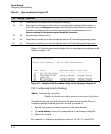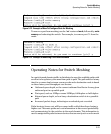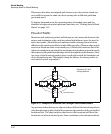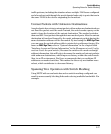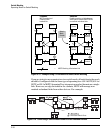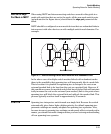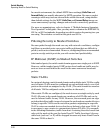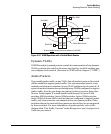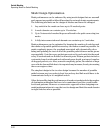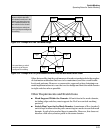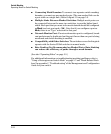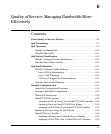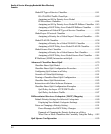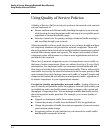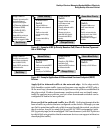
Switch Meshing
Operating Notes for Switch Meshing
Mesh Design Optimization
Mesh performance can be enhanced by using mesh designs that are as small
and compact as possible while still meeting the network design requirements.
The following are limits on the design of meshes and have not changed:
1. Any switch in the mesh can have up to 24 meshed ports.
2. A mesh domain can contain up to 12 switches.
3. Up to 5 inter-switch meshed hops are allowed in the path connecting two
nodes.
4. A fully interconnected mesh domain can contain up to 5 switches.
Mesh performance can be optimized by keeping the number of switches and
the number of possible paths between any two nodes as small as possible. As
mesh complexity grows, the overhead associated with dynamically calcu-
lating and updating the cost of all of the possible paths between nodes grows
exponentially. Cost discovery packets are sent out by each switch in the mesh
every 30 seconds and are flooded to all mesh ports. Return packets include a
cost metric based on inbound and outbound queue depth, port speed, number
of dropped packets, etc. Also, as mesh complexity grows, the number of hops
over which a downed link has to be reported may increase, thereby increasing
the reconvergence time.
The simplest design is the two-tier design because the number of possible
paths between any two nodes is kept low and any bad link would have to be
communicated only to it's neighbor switch.
Other factors affecting the performance of mesh networks include the number
of destination addresses that have to be maintained, and the overall traffic
levels and patterns. However a conservative approach when designing new
mesh implementations is to use the two-tier design and limit the mesh domain
to eight switches where possible.
5-22



